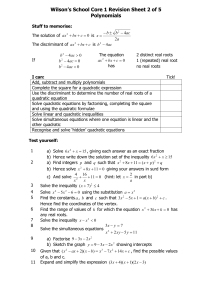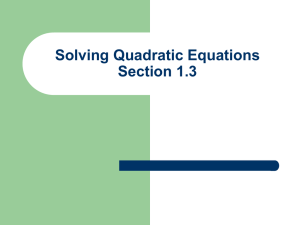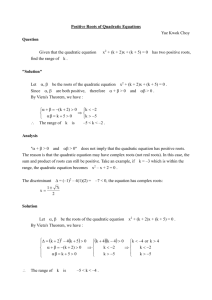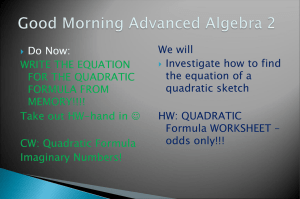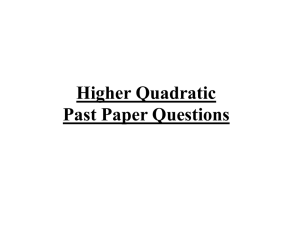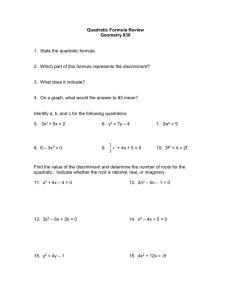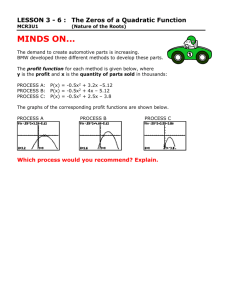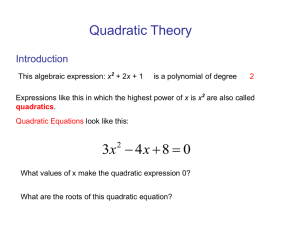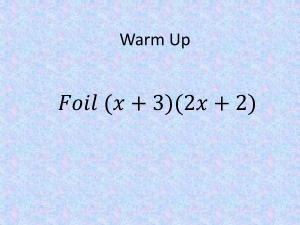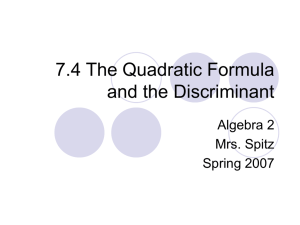Quadratic Formula
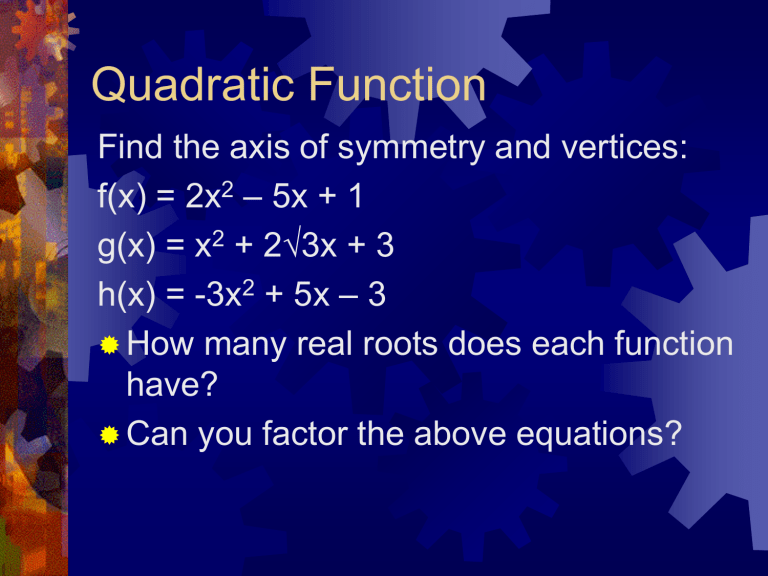
Quadratic Function
Find the axis of symmetry and vertices: f(x) = 2x 2 – 5x + 1 g(x) = x 2 + 2√3x + 3 h(x) = -3x 2 + 5x – 3
How many real roots does each function have?
Can you factor the above equations?
Quadratic Function
Many times we can not factor the quadratic function, either because it does not have integers for roots, or because it does not even have real roots. In those cases, we use the quadratic formula
Quadratic Formula
The a, b and c are from the standard form of the quadratic equation: y = ax 2 + bx + c
The quadratic formula may be used to factor any quadratic function. The roots are: b
2
4 ac x
b
2 a
Quadratic Formula
x
b
b
2
4 ac
2 a
The discriminant is the number under the square root sign. The discriminant is: b
2
4 ac
The discriminant determines how many real roots the quadratic function has.
Quadratic Formula
x
b
b
2
4 ac
2 a
What are the # & type of roots if:
1.
If the discriminant is positive?
2.
2 real roots
If the discriminant is negative?
3.
2 imaginary roots
If the discriminant is zero?
1 real root duplicity 2
Quadratic Formula
x
b
b
Let f(x) = 2x 2 – 5x + 1
2 a
2
4 ac
5
17
What is the value of the discriminant?
(
5 )
2
4 ( 2 )( 1 )
25
8
17
How many and type of roots does f(x) have?
2 real roots
Calculate the zeros of f(x) using the quadratic equation:
5
4
17
Quadratic Formula
x
b
b
2 a
Let g(x) = -3x 2 + 5x – 3
2
4 ac
5
17
What is the value of the discriminant?
5
2
4
(
3 )
25
36
11
How many and type of roots does g(x) have?
2 imaginary roots
Calculate the zeros of g(x) using the quadratic equation:
5
i
6 6
11
Geometry
The seats in a theater are arranged in parallel rows that form a rectangular region. The number of seat in each row of the theater is 16 fewer than the number of rows. How many seats are in each row of a 1161 seat theater?
Accounting
To approximate the profit per day for her business, Mrs. Howe uses the formula p = - x 2 + 50x – 350. The profit, p, depends on the number of cases, x, of decorator napkins that are sold.
How many cases of napkins must she sell to break even?
How many cases should she sell to maximize profit?
Find the maximum profit.
Practice
Page 93, # 3 – 21 by 3’s and 22 – 25 all
